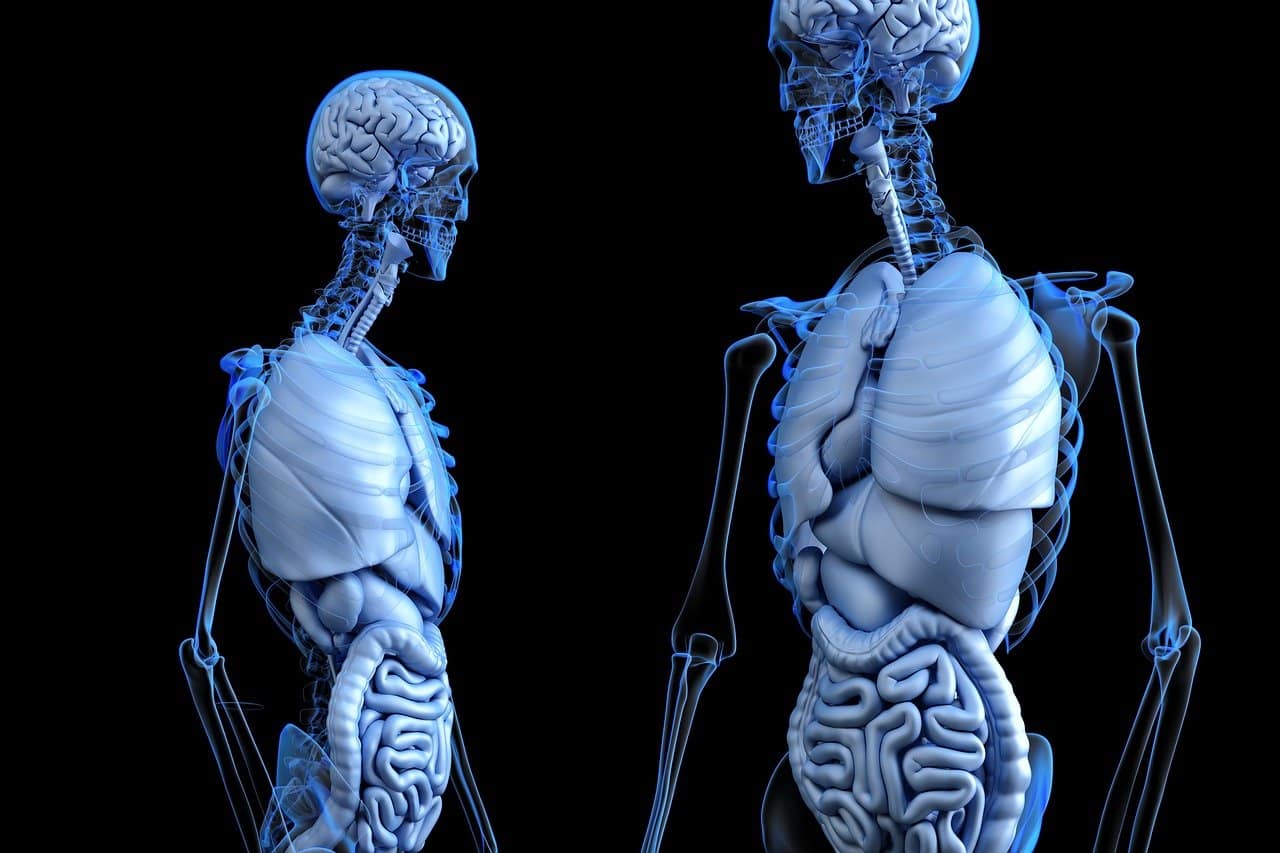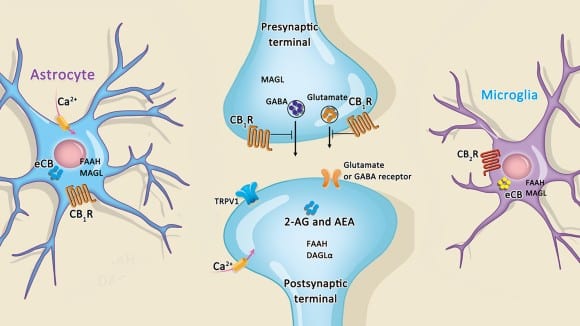
Can CBD Cause Constipation?
CBD, short for cannabidiol, is a compound found in the hemp plant. Unlike its cousin THC, CBD does not produce any psychoactive effects.
It has been gaining popularity for its potential health benefits and therapeutic properties. CBD interacts with cannabinoid receptors in the human body, which are part of the endocannabinoid system. This system helps regulate various body functions, including metabolism, pain sensation, and immune response.
CBD is commonly used for a wide range of health issues, including digestive issues such as constipation. CBD can come in various forms, such as oils, tinctures, capsules, and edibles, and is often combined with other additional ingredients like hemp seed oil or other natural ingredients to enhance its effects.
However, it is important to note that CBD should be used under the guidance of medical professionals, as it may have potential side effects and interactions with certain medications.
Does CBD Cause Constipation? Exploring the Relationship
CBD has gained considerable popularity in recent years for its potential therapeutic effects. However, some users have reported experiencing digestive problems, leading to questions about CBD’s possible role in constipation. In this article, we will explore the relationship between CBD and constipation while clarifying some misconceptions.
The Relationship Between CBD and Constipation:
It is important to note that while anecdotal evidence exists linking CBD use to digestive issues, such as constipation, it is crucial to understand that constipation is rarely a stand-alone condition. Instead, it is typically a symptom of an underlying health issue like irritable bowel syndrome or inflammatory bowel disease.
CBD Itself Does Not Cause Constipation:
CBD, as an active ingredient derived from the hemp plant, does not directly cause constipation. However, some CBD products may contain additional ingredients, such as certain oils or additives, that can potentially contribute to digestive issues.
Consideration of CBD Additives:
When using CBD products, it is essential to be aware of the additives or carriers used in their formulation. Hemp seed oil, for example, can have a high fiber content, which may aid in bowel movements and alleviate constipation symptoms. On the other hand, certain oils or other additives might affect digestion differently, influencing the likelihood of experiencing constipation.
While CBD itself does not cause constipation, the additives used in CBD products may contribute to digestive issues. It is important to choose CBD products carefully, considering the ingredients used and potential effects on bowel function. If constipation persists or worsens, it is advisable to consult with a healthcare professional to identify and address the underlying health issues associated with digestive problems.
Digestive System Overview

The digestive system is a complex network of organs and processes that work together to break down food, absorb nutrients, and eliminate waste from the body. It plays a crucial role in maintaining overall health and well-being.
The digestive system begins in the mouth, where food is chewed and mixed with saliva, and continues through the esophagus, stomach, small intestine, large intestine, and rectum. Along the way, digestive juices and enzymes help to break down food into smaller particles, which are then absorbed into the bloodstream and used by the body for energy and other essential functions.
The waste that is left behind after digestion is eliminated from the body through the process of bowel movements. The digestive system is a complex and delicate system, and any disruption or malfunction can lead to digestive issues such as constipation, diarrhea, or other problems. It is important to take care of our digestive health through a balanced diet, regular exercise, and proper hydration.
Anatomy of the Digestive System
The digestive system is a complex network of organs that work together to process food and absorb nutrients. It is responsible for breaking down food into smaller molecules that can be easily absorbed by the body.
The key components of the digestive system include the mouth, esophagus, stomach, small intestine, large intestine, liver, gallbladder, and pancreas. Each component plays a crucial role in the digestion and absorption process.
Food enters the digestive system through the mouth, where it is mechanically broken down by chewing and mixed with saliva. The esophagus then transports the food to the stomach, where it is further broken down by stomach acids and enzymes.
Next, the food moves to the small intestine, where it undergoes chemical digestion, meaning that enzymes break down proteins, carbohydrates, and fats into smaller molecules. These molecules are then absorbed into the bloodstream through the small intestine’s lining.
The large intestine absorbs water and electrolytes from the undigested food, forming stool. The liver, gallbladder, and pancreas produce and release digestive enzymes and substances that aid in the digestion process.
The digestive system works together to facilitate the breakdown of food into nutrients, which are then absorbed by the body for various functions. Understanding the anatomy of the digestive system helps in maintaining a healthy digestive system and overall well-being.
Role of Cannabinoid Receptors in the Digestive System

Cannabinoid receptors play an essential role in the digestive system by regulating various aspects of digestive functions. These receptors, specifically CB1 and CB2 receptors, are present in the gut and are integral to maintaining the proper functioning of the digestive system.
CB1 receptors are mainly found in the nervous system, including the enteric nervous system, which controls the gut’s smooth muscle contraction and secretion. Activation of CB1 receptors can help regulate bowel movements and promote proper bowel motility. They also play a role in reducing inflammation in the gut and alleviating symptoms associated with inflammatory bowel diseases.
CB2 receptors are primarily located in immune cells within the gastrointestinal tract. These receptors help modulate immune responses and regulate inflammation in the gut. By activating CB2 receptors, the body can potentially reduce inflammation and alleviate symptoms of digestive health issues such as abdominal pain and cramping.
The endocannabinoid system (ECS) utilizes these cannabinoid receptors to maintain balance and restore equilibrium in the digestive system. When the digestive system is compromised due to factors like chronic constipation or inflammatory bowel disease, the ECS’s activation can help promote relief and restore proper digestive function.
Cannabinoid receptors, specifically CB1 and CB2 receptors, play a crucial role in regulating digestive functions. Through their activation, the endocannabinoid system helps maintain balance and restore equilibrium in the digestive system, offering potential relief from various digestive health issues.
Symptoms of Constipation
Constipation is a common digestive issue that can impact someone’s overall wellbeing and quality of life. It is characterized by infrequent bowel movements, difficulty passing stools, and a feeling of incomplete evacuation.
Other symptoms may include abdominal pain, bloating, and a general sense of discomfort. When left untreated, constipation can lead to more severe forms of bowel dysfunction and impact the body’s metabolism of food. It is important to identify and address the symptoms of constipation promptly to prevent further health complications.
Seeking medical advice and exploring treatment options, such as dietary changes, increased hydration, exercise, and, in some cases, the use of natural remedies or medications, can help manage and alleviate the discomfort associated with constipation. R
emember, everyone’s digestive system is unique, so it is essential to pay attention to your body and consult with medical professionals for personalized guidance and care.
Infrequent Bowel Movements
Infrequent bowel movements, characterized by having less than three bowel movements per week, are one of the common symptoms of constipation. While the frequency of bowel movements can vary from person to person, regular and healthy bowel movements typically involve passing stools at least once a day or every other day.
When bowel movements become infrequent, it can lead to discomfort and hinder the body’s natural digestive process. This condition is often accompanied by symptoms such as abdominal pain, bloating, and a feeling of incomplete evacuation.
The causes of infrequent bowel movements can vary. Factors such as a low-fiber diet, dehydration, lack of physical activity, certain medications, and underlying health conditions can contribute to this problem. In some cases, lifestyle changes and dietary modifications can help improve bowel motility and establish regular bowel movements.
If you are experiencing infrequent bowel movements or other symptoms of constipation, it is important to consult with a medical professional to determine the underlying cause and find an effective treatment plan. They can provide guidance on dietary changes, recommend fiber supplements or other medications, and address any other health issues that may be contributing to your infrequent bowel movements.
It is crucial to prioritize your digestive health and maintain proper bowel function to avoid the discomfort and adverse side effects that can result from prolonged constipation.
Abdominal Pain and Stomach Pain

Abdominal pain and stomach pain are common symptoms experienced by individuals with constipation. When bowel movements become infrequent, the build-up of stool in the colon can lead to discomfort and pain in the abdomen and stomach area.
The stretching and pressure from the trapped stool can cause cramping and bloating, leading to a generalized discomfort in the abdominal region. This discomfort can range from mild to severe, depending on the severity of constipation and the individual’s pain threshold.
The correlation between constipation and abdominal/stomach pain is due to the disruption of normal bowel function. When stool remains in the colon for an extended period, it becomes harder and drier, making it difficult to pass. The increased pressure and straining during bowel movements can cause the muscles in the abdomen and stomach area to contract forcefully, resulting in pain.
In addition to abdominal pain, individuals with constipation may also experience other symptoms such as a feeling of fullness, a sensation of incomplete evacuation, and even nausea. It is important to address constipation promptly to relieve the discomfort and prevent further complications.
If you are experiencing abdominal pain or stomach pain along with constipation, it is advisable to consult a medical professional. They can help identify the underlying cause of constipation and provide appropriate treatment options to alleviate the symptoms and promote regular bowel movements.
Other Symptoms Associated with Constipation
Constipation is not just characterized by infrequent bowel movements, but it can also come with a range of other uncomfortable symptoms. Bloating is a common symptom experienced by those with constipation. The buildup of stool in the colon can cause excess gas and a feeling of fullness in the abdomen, leading to bloating.
Painful bowel movements are another common symptom of constipation. When the stool is hard and dry, it can be difficult and painful to pass. This can result in discomfort and even tears in the rectum, leading to pain during bowel movements.
Constipated individuals may also notice that their stool is lumpy or hard. This is a tell-tale sign of constipation as the prolonged retention of stool in the colon can cause it to become dehydrated and compacted.
Difficulty passing stool is a hallmark symptom of constipation. As the stool becomes harder and larger, it can be challenging to push it out. This can result in straining and discomfort during bowel movements.
In addition to these symptoms, constipation can also cause a range of other issues such as decreased appetite, fatigue, and even mild to moderate abdominal cramps.
It is important to address constipation promptly to alleviate these uncomfortable symptoms and to maintain regular bowel movements.
Causes of Constipation
Constipation can be caused by a variety of factors, and understanding the underlying causes is essential for effective management and prevention. One common cause of constipation is a lack of fiber in the diet.
Fiber adds bulk to the stool and helps the digestive system move waste through the intestines. Insufficient water intake can also lead to constipation, as dehydration can make the stool hard and difficult to pass. Inactivity and a sedentary lifestyle can slow down the movement of the intestines, resulting in constipation.
Certain medications, such as painkillers, antacids, and antidepressants, can also disrupt normal bowel function. Hormonal changes during pregnancy can contribute to constipation as well. It’s important to identify the underlying cause of constipation to address the issue effectively and promote healthy bowel movements.
Poor Diet and Nutrition Habits
Poor diet and nutrition habits can have a significant impact on digestive health, specifically leading to constipation. When individuals fail to consume a balanced diet, it often results in a lack of essential nutrients and fiber-rich foods.
A lack of fiber-rich foods can contribute to decreased gastric mobility, making it difficult for the digestive system to effectively process and eliminate waste. Without adequate fiber intake, stool can become hardened and dry, leading to infrequent bowel movements and constipation.
Inadequate liquid intake also plays a role in constipation. Without enough fluids, the body is unable to properly soften the stool, making it harder to pass. This can further exacerbate constipation symptoms.
To relieve and prevent constipation, it is important to incorporate fiber-rich foods into the diet. Fruits, vegetables, and whole-grain products are excellent sources of dietary fiber, aiding in digestion and promoting regular bowel movements. Additionally, staying hydrated by consuming an adequate amount of water and other fluids throughout the day can help soften the stool and improve bowel function.
Poor diet and nutrition habits, including a lack of fiber-rich foods and inadequate liquid intake, can contribute to decreased gastric motility and constipation. By incorporating fiber-rich foods and staying properly hydrated, individuals can find relief from constipation and improve their digestive health.
Lack of Physical Activity
Lack of physical activity can have a significant impact on constipation and overall digestive health. When we lead a sedentary lifestyle and do not engage in regular exercise, it can contribute to a variety of digestive issues, including constipation.
One of the main ways inactivity affects the digestive system is through low circulation. When we are not physically active, blood flow throughout the body, including the digestive tract, decreases. This reduced circulation can slow down the movement of food through the intestines, leading to constipation.
Additionally, prolonged periods of inactivity can weaken the muscles in the stomach and intestinal walls. These muscles play a crucial role in moving waste through the digestive system. When these muscles are weakened, their ability to effectively push waste along can be hindered, ultimately leading to constipation.
Sitting for extended periods, which is common in a sedentary lifestyle, also negatively impacts the digestive system. Sitting puts pressure on the abdomen, which can further slow down the movement of food through the intestines. This can contribute to constipation and discomfort.
To combat the negative effects of lack of physical activity on constipation, it is important to stay physically active. Regular exercise helps to stimulate the digestive system and promotes healthy bowel movements. Engaging in activities such as walking, jogging, yoga, or other forms of exercise can help improve circulation, strengthen stomach muscles, and support regular bowel movements.
Incorporating more physical activity into daily routines can make a significant difference in preventing and alleviating constipation. Prioritizing movement and exercise, along with a balanced diet and adequate hydration, can help maintain a healthy digestive system.
Health Issues such as Inflammatory Bowel Disease (IBD) or Irritable Bowel Syndrome (IBS)
Inflammatory Bowel Disease (IBD) and Irritable Bowel Syndrome (IBS) are two common health issues that can greatly impact the digestive system.
IBD is a group of chronic inflammatory conditions that affect the gastrointestinal tract, including Crohn’s disease and ulcerative colitis. IBD can cause symptoms such as abdominal pain, diarrhea, bloody stools, weight loss, and fatigue. These conditions can significantly impair the normal functioning of the digestive system and lead to a range of complications.
On the other hand, IBS is a functional disorder characterized by recurrent abdominal pain and changes in bowel habits. Symptoms of IBS can include bloating, gas, diarrhea, and constipation. While IBS does not cause inflammation in the digestive tract like IBD, it can still greatly impact an individual’s quality of life and cause significant discomfort.
The exact causes of IBD and IBS are not fully understood, but both conditions are thought to involve a combination of genetic, environmental, and immune system factors. Risk factors for these conditions can include a family history of IBD or IBS, a history of gastrointestinal infections, changes in the gut microbiome, and increased intestinal permeability.
The endocannabinoid system, which consists of cannabinoid receptors located throughout the body, including the gastrointestinal tract, plays a crucial role in regulating various functions, including gut motility, immune response, and inflammation. CBD, a compound derived from the cannabis plant, has been shown to interact with the endocannabinoid system and may have anti-inflammatory and analgesic properties. This suggests that CBD may provide relief for individuals with IBD or IBS by reducing inflammation and alleviating symptoms associated with these conditions.
IBD and IBS are health issues that can greatly impact the digestive system and cause a range of symptoms and complications. Understanding the causes and risk factors associated with these conditions is crucial for proper management and treatment. Additionally, the interaction between CBD and the endocannabinoid system offers potential relief for individuals suffering from IBD or IBS. However, further research is needed to fully understand the effectiveness and safety of CBD in managing these conditions.
Hemp Plant and CBD Oil Extracts for Constipation Relief
Hemp plants and CBD oil extracts have gained popularity in recent years for their potential health benefits. With regards to constipation relief, these natural remedies have shown promise in helping individuals maintain regular bowel movements and alleviate discomfort.
CBD, derived from the hemp plant, interacts with the body’s endocannabinoid system and may possess anti-inflammatory properties. By reducing inflammation and promoting gut motility, CBD oil extracts may offer relief from constipation symptoms. However, it is important to note that further research is needed to fully understand the effects of CBD and how it can be effectively used to treat constipation.
Hemp Plant and Its Compounds Used to Treat Constipation
The compounds derived from the hemp plant have shown potential in treating constipation and promoting regular bowel movements. One such compound is CBD, which interacts with the cannabinoid receptors in the human body’s digestive system. These receptors play a crucial role in regulating bowel function and motility.
CBD can help alleviate constipation by increasing the transit time of fecal matter through the intestines, thus preventing the stool from becoming dry and hard. Additionally, CBD has anti-inflammatory properties that can be beneficial for individuals with inflammatory bowel disease or irritable bowel syndrome, conditions that can contribute to constipation.
Other compounds found in the hemp plant, such as hemp seed oil, contain a wide range of fatty acids that can help support digestive health. These fatty acids aid in the metabolism of food and can promote regular bowel movements.
Using hemp-derived compounds for constipation relief may offer several benefits. They provide a natural alternative to conventional medications, which can have adverse side effects. Additionally, hemp-derived compounds can address the underlying causes of constipation, rather than just providing temporary relief.
However, it is important to note that hemp-derived compounds should be used under the guidance of medical professionals, especially if you have any pre-existing health conditions. Additionally, ensure that the products you choose are made from high-quality hemp plants to avoid any potential contamination with heavy metals or other harmful substances.
In conclusion, the compounds derived from the hemp plant, such as CBD and hemp seed oil, offer potential benefits for treating constipation and promoting regular bowel movements. Consult with a healthcare professional to determine if these natural ingredients are suitable for your specific health condition.
Sources
Park JH, Moon JH, Kim HJ, Kong MH, Oh YH. Sedentary Lifestyle: Overview of Updated Evidence of Potential Health Risks. Korean Journal of Family Medicine. 2020;41(6):365-373. doi:https://doi.org/10.4082/kjfm.20.0165
Skinner CM, Nookaew I, Ewing LE, et al. Potential Probiotic or Trigger of Gut Inflammation – The Janus-Faced Nature of Cannabidiol-Rich Cannabis Extract. Journal of Dietary Supplements. 2020;17(5):543-560. doi:https://doi.org/10.1080/19390211.2020.1761506
Nagarkatti P, Pandey R, Rieder SA, Hegde VL, Nagarkatti M. Cannabinoids as novel anti-inflammatory drugs. Future Medicinal Chemistry. 2009;1(7):1333-1349. doi:https://doi.org/10.4155/fmc.09.93
Martínez V, Iriondo De-Hond A, Borrelli F, Capasso R, del Castillo MD, Abalo R. Cannabidiol and Other Non-Psychoactive Cannabinoids for Prevention and Treatment of Gastrointestinal Disorders: Useful Nutraceuticals? International Journal of Molecular Sciences. 2020;21(9). doi:https://doi.org/10.3390/ijms21093067
DiPatrizio NV. Endocannabinoids in the Gut. Cannabis and Cannabinoid Research. 2016;1(1):67-77. doi:https://doi.org/10.1089/can.2016.0001
Rollet M, Bohn T, Vahid F. Association between Dietary Factors and Constipation in Adults Living in Luxembourg and Taking Part in the ORISCAV-LUX 2 Survey. Nutrients. 2021;14(1):122. doi:https://doi.org/10.3390/nu14010122
Tajik P, Goudarzian AH, Shadnoush M, Bagheri B. Effect of red sugar on functional constipation in children compared to figs syrup; a randomized controlled trial study. Gastroenterology and Hepatology from Bed to Bench. 2018;11(4):313-318. Accessed March 2, 2023. https://pubmed.ncbi.nlm.nih.gov/30425810/
Kogan NM, Lavi Y, Topping LM, et al. Novel CBG Derivatives Can Reduce Inflammation, Pain and Obesity. Molecules. 2021;26(18):5601. doi:https://doi.org/10.3390/molecules26185601
Borrelli F, Fasolino I, Romano B, et al. Beneficial effect of the non-psychotropic plant cannabinoid cannabigerol on experimental inflammatory bowel disease. Biochemical Pharmacology. 2013;85(9):1306-1316. doi:https://doi.org/10.1016/j.bcp.2013.01.017
Navarro G, Varani K, Reyes-Resina I, et al. Cannabigerol Action at Cannabinoid CB1 and CB2 Receptors and at CB1–CB2 Heteroreceptor Complexes. Frontiers in Pharmacology. 2018;9. doi:https://doi.org/10.3389/fphar.2018.00632
Gyires K, S. Zádori Z. Role of Cannabinoids in Gastrointestinal Mucosal Defense and Inflammation. Current Neuropharmacology. 2016;14(8):935-951. doi:https://doi.org/10.2174/1570159×14666160303110150
Guarize L, da Costa JC, Dutra LB, Mendes RF, Lima IVA, Scio E. Anti-inflammatory, laxative and intestinal motility effects ofSenna macrantheraleaves. Natural Product Research. 2012;26(4):331-343. doi:https://doi.org/10.1080/14786411003754264
Luo L, Yan J, Chen B, et al. The effect of menthol supplement diet on colitis-induced colon tumorigenesis and intestinal microbiota. American journal of translational research. 2021;13(1):38-56. https://www.ncbi.nlm.nih.gov/pmc/articles/PMC7847519/




































